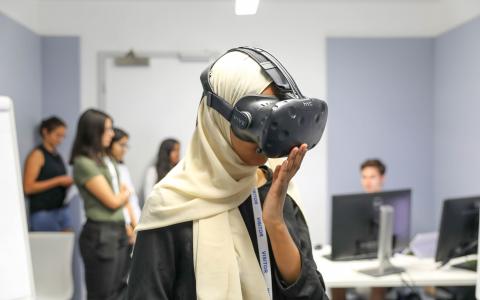
Neuronauts: Building scientific confidence in young minds
Now in its third year, the Neuronauts club is continuing to help young people to explore neuroscience, engineering and computing - and, most importantly, to discover what it means to be a scientist.
“Before, when I looked at science, I didn’t see humans, if that makes sense. You might hear about a discovery. But you don’t see what happened before that.” – Darcey Sear, Neuronauts participant.
“It was really cool to hear people talk about their PhD and how they're doing things that people haven't done before. School definitely paints this picture of all this information is out there, but then listening to people at Neuronauts, you realise there is so much more to know. That changed my perspective on science.” - Karin Haddon, Neuronauts participant.
Eighteen secondary school students aged 14-17 participated in the 2024 Neuronauts Summer Camp at SWC. Pupils learnt the principles of electrical engineering, programming, neurobiology and how to design experiments and analyse data. Not all the experiments worked out – some of the mazes they created proved too much for hungry fruit flies to navigate, for example – but students experienced the joy of science as it really is; a process driven by curiosity, creativity, and a willingness to fail and try again.
A missing part of science education
Neuronauts, conceived of and run by a group of PhD students and postdocs from UCL, SWC and GCNU, as well as external collaborators from Neurogears and Voight-Kampff, has several aims.
Jai Bhagat, SWC PhD student and one of the founders, is passionate about meaningful, impactful science. “Since finishing my Bachelor’s degree in Neuroscience I’ve had a strong desire to become more involved with teaching and outreach because frankly I believe there is no science without dissemination and public engagement,” he says. He also wanted to create a programme that is open to students from any background, especially those who may not have other opportunities to interact with science. The only prerequisite is a keen interest.
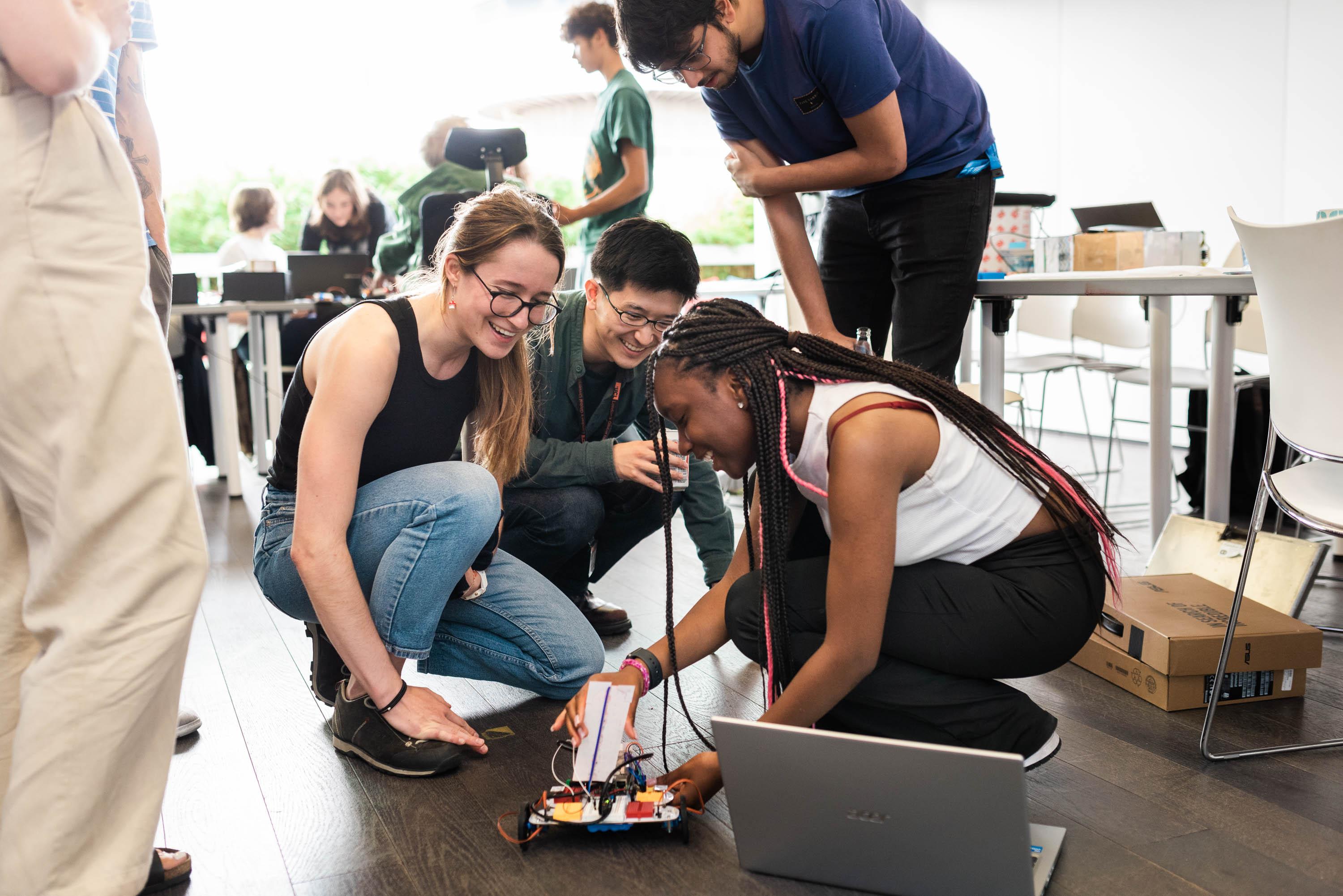
For Svenja Nierwetberg, co-founder and final-year PhD student at SWC, the focus is on building confidence in young people, especially those from disadvantaged backgrounds. “One of the challenges in science is that you have to figure things out as you go along. You won’t know most of the things a lot of times," she says. "You have to do an experiment, and part of it will be using a programme or a component or a chemical you’ve never seen before. You’re going to have to have that feeling of, 'Yeah, I can probably figure that out.'"
She also emphasises the importance of having an environment outside the school structure, where they can explore their interests. The club’s activities range widely and are led by whatever the students want to do. Svenja says the kids are ‘super ambitious’. Past projects have included building a prosthetic finger, and a drone that extinguishes wildfires. Not every project gets completely finished – but for Svenja, the specifics of the projects are less important than the skills they nurture.
"I don’t particularly care what the kids learn in a factual sense," she says. "What I want them to get out of it is more about the attitude, the confidence, and the toolkit to tackle any problem."
Sleep and fruit flies – Summer Camp 2024
With this mindset, the 2024 Neuronauts Summer Camp welcomed 18 students, almost doubling the prior intake thanks to support from the UCL EDI Contribution and Engagement Fund.
As in previous years, the camp featured short lectures in electrical engineering, computer science, and neurobiology in the mornings. Then, in the afternoons, students applied this knowledge to design, collect, and analyse data from novel behavioural experiments.
The students split into groups and decided what to do for their projects.
This year, students worked with live animals for the first time — genetically engineered fruit flies supplied by James Jepson.
One group of students experimented with the flies to explore how hunger affects their maze-solving abilities. The students designed mazes that were cut out of acrylic at the SWC MakerSpace. They then compared the performance of hungry and fed flies in finding the food hidden in the mazes.
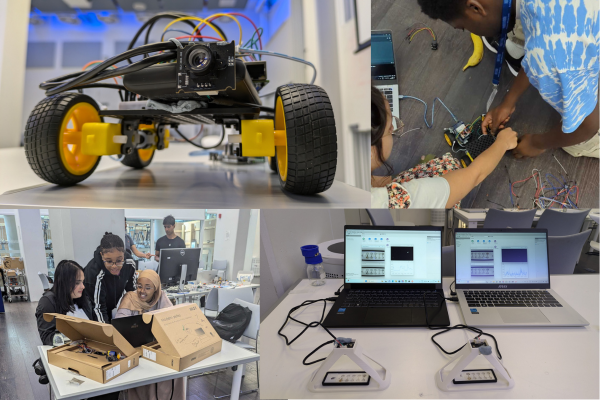
Many of the flies couldn’t solve the maze - but this was a valuable lesson. “The mazes were too complex,” Svenja reflects, “but that’s how you learn.” The real value, she argues, is in the process trying again if something doesn’t work the first time.
Another group designed and carried out an experiment on sleep. They wanted to know how what we do before going to bed might affect our sleep. To test this, they asked their subjects (in this case, the teaching assistants) to either read a book or look at social media on their phones before lying down for a nap. Using electrodes on their arms, the students measured the amount of movement as well as the presence of so called “hypnic jerks” - the involuntary muscle movements we sometimes experience when falling asleep. Their small study did not allow for conclusive results, but still gave the students a valuable opportunity to carry out an experiment from start to finish.
The camp culminated in a presentation for friends, family and the wider SWC community, where students showed their project work and were handed their certificates for successful completion of the Neuronauts Summer Camp.
Science beyond Neuronauts
Some of the participants have returned over the years – becoming mentors to the younger pupils.
Karin Haddon joined the first Neuronauts in 2022 and has returned to the club in subsequent years. She is currently studying computer science at A-level and particularly enjoyed the coding aspects of Neuronauts.
In the 2023 Summer Camp, with her group, she built a robot which connected to ChatGPT through an open API, so they could control it using a microphone and speaker.
“This was pretty much my first introduction to AI – this was just after ChatGPT had come out and was getting really popular. Neuronauts was the first time I learned about neural networks. The curriculum at school hasn't really caught up yet in computer science because it's changing so fast. I want to study computer science further, and I’ve learnt so much that will help me, especially the real-world applications of it.”
Karin is now applying to study computer science at University.
“I think for me, because most people teaching at Neuronauts are PhD students, it introduced me to research. I never thought that was something that I could go into. I thought I’d go to university, get a job in industry. But now I’d really like to go into research” she says.
Karin also enjoyed the process of experiments. “We did a lot of trial and error and got the real sense of the processes that it takes to actually figure out what’s happening. Before, research felt very abstract. It's so nice to see what it’s actually like to work on something new.”
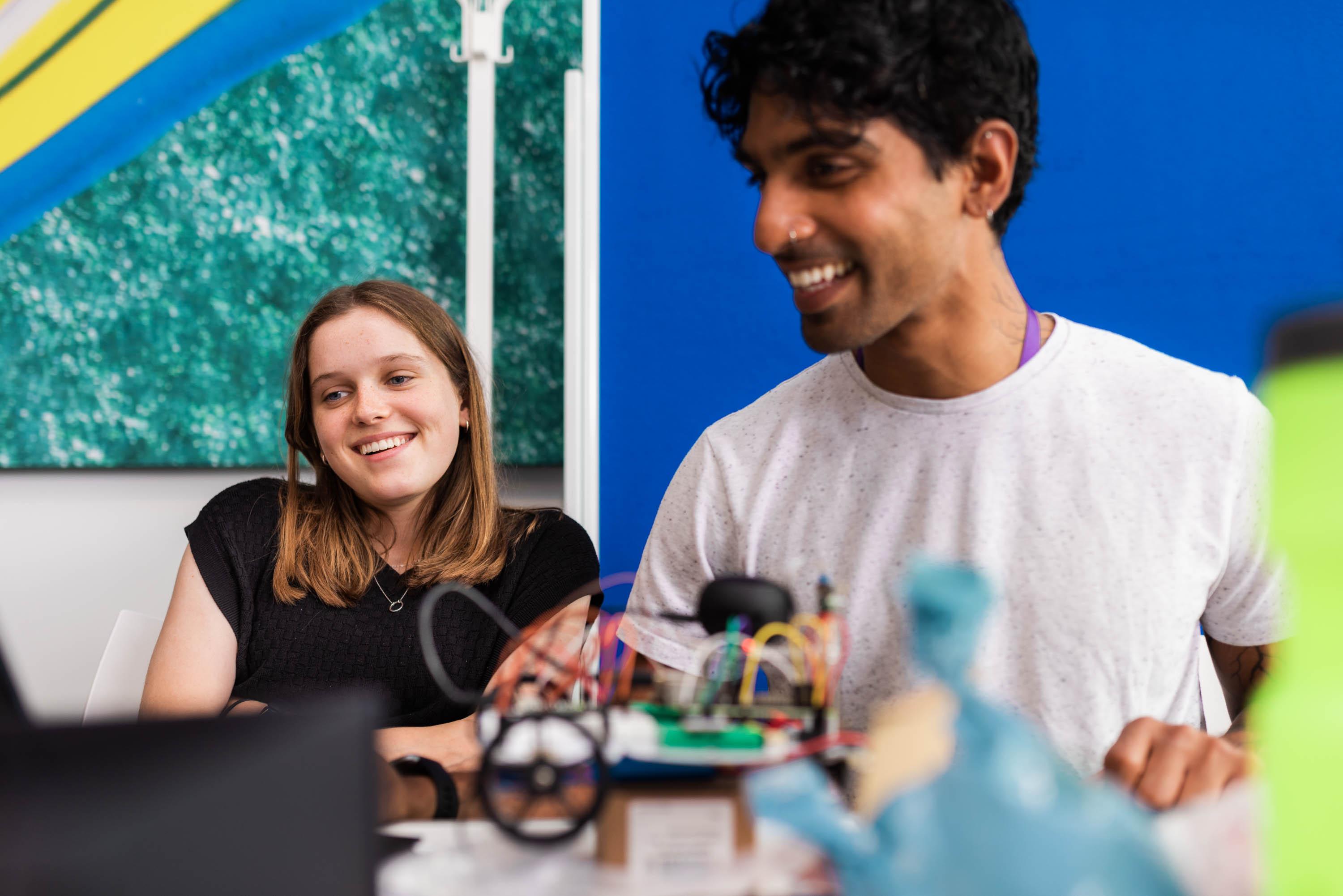
Darcey Sear also joined Neuronauts in 2022, and is currently applying to University to study physics.
“Over the course of doing this club, I gained more confidence that I actually wanted to go into physics research.
“It definitely doesn't push you into any specific path. It's been about learning scientific methods, and how to apply your passion to something that you want to do.”
The club has also created a community of participants. “It’s nice because it's so different to school,” says Darcey. “At school, everyone has to be there. But at Neuronauts people have chosen to come. People are more enthusiastic, I guess, and they're really interested in the topic.”
“The biggest thing I've taken away from it is the people. Being able to collaborate and getting to know everyone who runs the course is great. Everyone is amazing.”
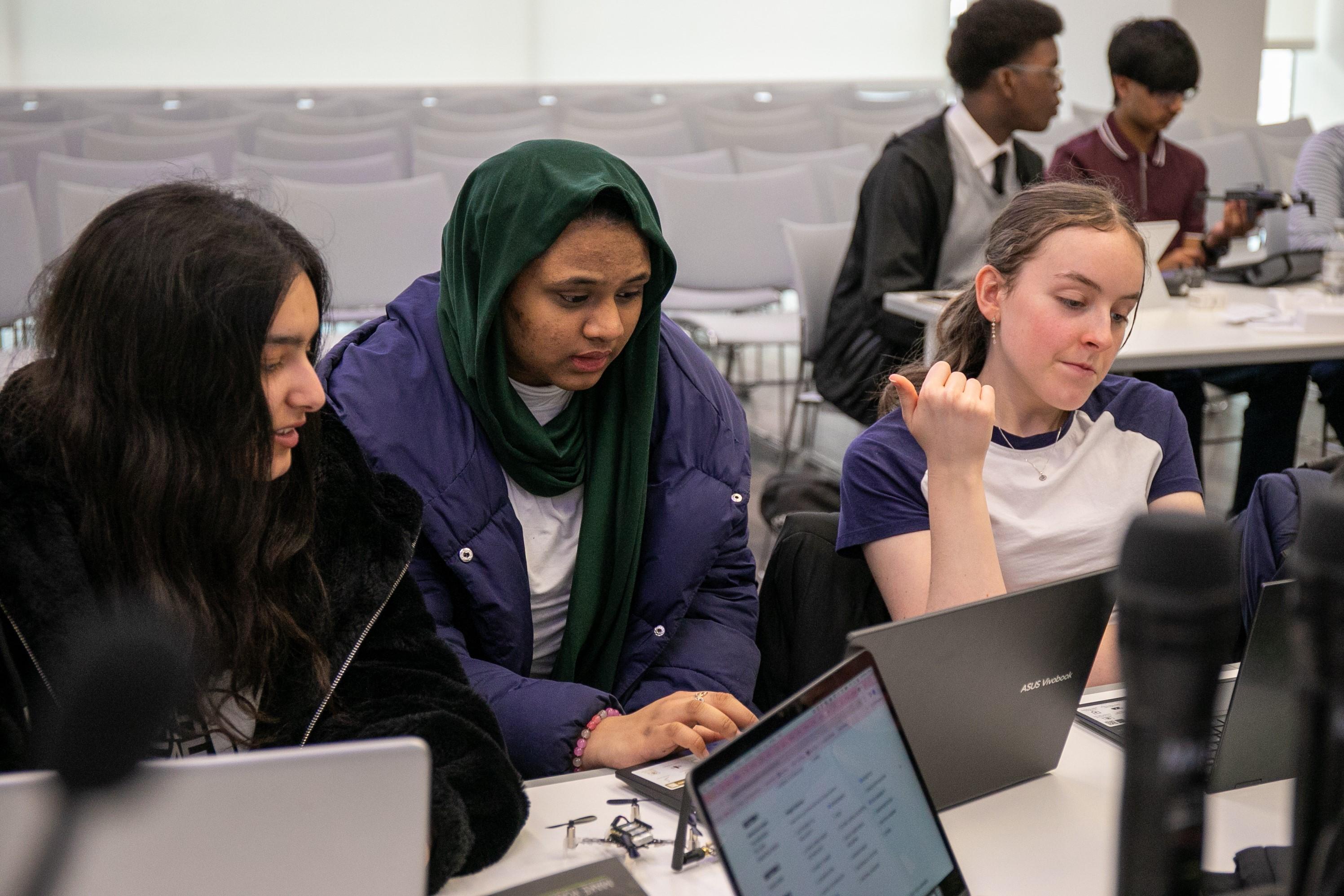
Acknowledgements
This year's summer camp was possible thanks to the help and efforts of many people.
The camp was possible thanks to funders including the SWC, Voight-Kampff via the Jean-François and Marie-Laure de Clermont-Tonnerre Foundation, the UCL Widening participation Fund and the EDI Contribution and Engagement Fund.
Organisers and instructors played crucial roles in making it an accommodating and rewarding camp. Thanks to organisers Jai Bahgat, Svenja Nierwetberg, Pip Cohen and teachers Andrew Erskine (Neurogears), Adam Kampff (Voight-Kampff), Margarida Pexirra (Erlich Lab), Mehul Rastogi (SWC PhD Programme), Ella Svahn (Akrami & MacAskill Lab, SWC/UCL), Kristina Valentinova (MacAskill Lab, UCL), Daniel Yang (Erlich & Harris Lab, SWC/UCL), Meg Young (SWC PhD Programme).
Thanks to Elena Dreosti, Karen Fergus, April Cashin-Garbutt, Hyewon Kim, and the SWC Brasserie staff for organisational and administrative support.
Lastly, we thank the students for their exuberant energy and engagement, without which our journey of discovery and innovation would have been far less inspiring.
To find out more, please visit our Neuronauts page.


